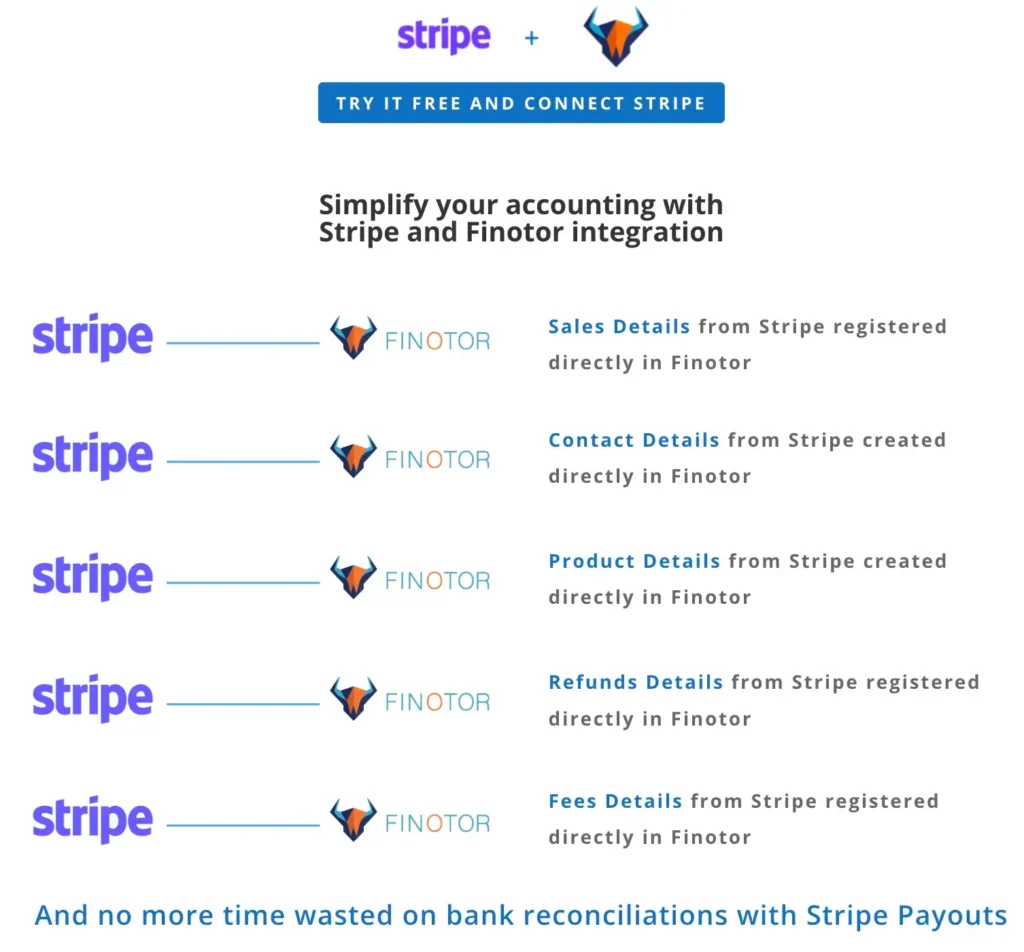Contents
- 1 What is an Ecommerce Accountant?
- 2 Key Responsibilities of an Ecommerce Accountant
- 3 Benefits of Hiring an Ecommerce Accountant
- 4 Why Your Generalist Accountant is Failing You
- 5 The Hidden Costs of Generalist Accountants
- 6 The Unseen Costs of Sticking with a Generalist
- 7 When to Switch to an Ecommerce Accountant
- 8 Case Studies: Real-World Impacts
- 9 What is an Accountant for Ecommerce with Shopify?
- 10 What is Ecommerce accounting with WooCommerce?
- 11 What is Ecommerce accounting with Stripe?
- 12 Conclusion
Where every second counts and each decision directly impacts your bottom line, effective financial management is very important, even vital for an e-commerce player. Entrepreneurs, CEOs, and freelancers often face a pressing question: when is the right time to hire an accountant, and should they choose an accountant for Ecommerce, a real specialist ecommerce accountant?
If you’re still relying on a generalist accountant, you’re making a risky mistake. Specialized ecommerce accounting isn’t a luxury; it’s a necessity that can mean the difference between thriving and merely surviving. Let’s explore why specialized ecommerce accounting services are essential for your ecommerce business.
What is an Ecommerce Accountant?
An ecommerce accountant is a specialized ecommerce accountant who understands the unique dynamics of online businesses. Unlike generalist accountants who handle a variety of business types, ecommerce accountants focus solely on the ecommerce sector.
They possess deep knowledge of the specific challenges and opportunities in the online marketplace. This includes expertise in managing inventory, navigating complex digital sales tax regulations, and optimizing cash flow in an environment characterized by rapid transactions.
Their targeted skills ensure that ecommerce businesses operate efficiently, comply with regulatory requirements, and maximize profitability.

Key Responsibilities of an Ecommerce Accountant
- Inventory Management: Efficiently tracking inventory levels, cost of goods sold (COGS), and inventory valuation to maintain optimal stock levels and reduce holding costs.
- Tax Compliance: Staying updated with the ever-changing digital sales tax laws and ensuring compliance to avoid fines and penalties. This includes managing tax obligations across different states and countries, given the global reach of ecommerce.
- Cash Flow Optimization: Implementing strategies to improve cash flow management, ensuring that the business has sufficient liquidity to meet its operational needs and invest in growth opportunities.
- Financial Reporting and Analysis: Providing detailed and accurate financial reports that offer insights into the business’s performance. This includes real-time reporting and analysis, which are crucial for making informed strategic decisions.
- Cost Management: Identifying areas to reduce costs and improve profitability through careful analysis of expenses and implementation of cost-saving measures.
- Utilizing Advanced Tools: Leveraging specialized accounting software like Finotor to streamline accounting processes, enhance accuracy, manage tax planning, and provide comprehensive financial analysis. These tools help automate routine tasks, reduce errors, and offer advanced analytics capabilities. Finotor popular with e-commerce accountants.
Ecommerce accountants provide a wide range of accounting services, including bookkeeping, financial statement preparation, tax compliance, detailed forecasts and budgets, tracking cash flow, providing advice on cost reduction, and supporting in strategic planning to promote business growth and profitability.
Benefits of Hiring an Ecommerce Accountant
- Expertise in Ecommerce Dynamics: Ecommerce accountants bring a thorough understanding of the online business landscape, allowing them to offer tailored advice and strategies that align with the unique needs of ecommerce operations.
- Enhanced Financial Efficiency: By focusing on the specific requirements of ecommerce, these accountants can streamline financial processes, improve efficiency, and contribute to better financial health and performance.
- Strategic Growth Support: With their specialized knowledge, ecommerce accountants can help ecommerce business owners navigate growth phases, manage financial complexities, and support strategic expansion efforts.
In summary, an ecommerce accountant provides invaluable expertise and support, ensuring that online businesses operate smoothly, stay compliant, and achieve financial success. Their specialized skills and knowledge are critical for navigating the unique challenges of the ecommerce industry, making them an essential asset for any online business.
Why Your Generalist Accountant is Failing You
1. Lack of Industry-Specific Knowledge
Generalist accountants might be proficient in basic bookkeeping and tax preparation, but they lack the deep industry-specific knowledge that ecommerce businesses require. This gap can lead to missed opportunities and costly mistakes.
Ecommerce accounting involves complexities such as managing online sales platforms, handling multiple payment gateways, and understanding the nuances of digital marketing expenses. Without this specialized knowledge, generalist accountants may overlook critical aspects that could optimize your financial strategy and enhance profitability.
Ecommerce companies, in particular, need accountants who understand inventory management, online transactions, financial statements, and sales tax obligations to avoid issues related to revenue reporting and compliance.
2. Complex Sales Tax Compliance
E-commerce business face a labyrinth of tax regulations that vary by state and country. A generalist accountant might not be up-to-date with the latest changes, risking compliance issues and potential fines.
Each state and country has different tax rules for online sales, and staying compliant, especially with sales tax compliance, requires constant vigilance. An ecommerce accountant, on the other hand, stays current with these regulations and ensures your business remains compliant, mitigating the risk of penalties and ensuring smooth operations.
3. Inventory Management
Managing inventory is a critical aspect of ecommerce accounting. Generalist accountants may not be equipped to handle the complexities of inventory tracking, cost of goods sold (COGS), and inventory valuation across multiple sales channels.
Ecommerce accountants use specialized tools like Finotor, accounting software to streamline these processes, providing accurate and timely insights. They understand the importance of real-time inventory management, which affects everything from cash flow to customer satisfaction.
By leveraging advanced software, ecommerce accountants can offer precise inventory management solutions, helping businesses avoid stockouts and overstock situations.
The Hidden Costs of Generalist Accountants
1. Hidden Inefficiencies in Accounting Software
Generalist accountants often overlook the unique financial intricacies of ecommerce, leading to inefficiencies that can drain your resources. These inefficiencies manifest as higher operational costs and reduced profit margins.
Without a deep understanding of ecommerce-specific financial challenges, such as accurately tracking income and expenses that enter and leave the bank account, generalist accountants may fail to identify cost-saving opportunities, leading to unnecessary expenses and reduced competitiveness.
2. Missed Growth Opportunities
Without the specialized knowledge to identify and leverage growth opportunities, generalist accountants can inadvertently stifle your business’s potential. Ecommerce accountants, with their finger on the pulse of industry trends, can provide strategic advice to propel your business forward.
They can identify emerging market opportunities, optimize pricing strategies, and advise on scaling operations, ensuring that your business remains competitive and poised for growth.
3. Inadequate Financial Reporting
Accurate and detailed financial reporting is crucial for making informed decisions. Generalist accountants may not provide the level of detail required for ecommerce businesses, resulting in poor decision-making and missed opportunities.
Ecommerce accountants offer comprehensive financial reports that include critical metrics such as customer acquisition costs, lifetime value of customers, and channel-specific performance. This level of detail enables better strategic planning and decision-making, driving business success.
So, relying on a generalist accountant for your ecommerce business is a risky gamble. Their lack of industry-specific knowledge, inability to navigate complex tax compliance, and inadequate inventory management can lead to inefficiencies, missed growth opportunities, and subpar financial reporting. An ecommerce accountant, equipped with specialized tools like Finotor, provides the expertise and insights necessary to optimize financial management, ensure compliance, and drive growth. Embrace the specialized knowledge of an ecommerce accountant to unlock your business’s full potential and achieve unprecedented success.
The Unseen Costs of Sticking with a Generalist
1. Hidden Inefficiencies
Generalist accountants often overlook the unique financial intricacies of ecommerce, leading to inefficiencies that can drain your resources. These inefficiencies manifest as higher operational costs and reduced profit margins. For instance, they might not be familiar with the latest ecommerce-specific tools and strategies that can automate processes and reduce manual errors. This lack of efficiency can significantly impact your bottom line, making it harder to stay competitive in the fast-paced online marketplace.
- Operational Costs: Increased due to outdated processes and lack of automation.
- Profit Margins: Erode over time as inefficiencies accumulate.
2. Missed Growth Opportunities
Without the specialized knowledge to identify and leverage growth opportunities, generalist accountants can inadvertently stifle your business’s potential. Ecommerce accountants, with their finger on the pulse of industry trends, can provide strategic advice to propel your business forward. They understand the nuances of online marketing, customer acquisition costs, and can offer insights into scaling operations effectively. This strategic guidance is crucial for maximizing your business’s growth potential.
- Market Trends: Identifying and capitalizing on emerging trends.
- Strategic Planning: Advising on growth strategies tailored to ecommerce.
3. Inadequate Financial Reporting
Accurate and detailed financial reporting is crucial for making informed decisions. Generalist accountants may not provide the level of detail required for ecommerce businesses, resulting in poor decision-making and missed opportunities. Ecommerce accountants offer comprehensive financial reports that include critical metrics such as customer acquisition costs, lifetime value of customers, and channel-specific performance. This level of detail enables better strategic planning and decision-making, driving business success.
- Detailed Metrics: Providing insights into specific areas like customer acquisition and retention.
- Informed Decisions: Enabling better strategic planning with comprehensive data.
So, sticking with a generalist accountant for your ecommerce business incurs unseen costs that can hamper growth and efficiency. Hidden inefficiencies, missed growth opportunities, and inadequate financial reporting can severely impact your business’s performance. An ecommerce accountant, with their specialized knowledge and tools, can transform these challenges into opportunities, ensuring your business thrives in the competitive online marketplace. Don’t let outdated financial practices hold you back—invest in specialized ecommerce accounting to unlock your business’s full potential.
When to Switch to an Ecommerce Accountant
1. Scaling Up
If your business is experiencing rapid growth, the complexity of your financial operations will increase. This is the perfect time to bring in an ecommerce accountant who can manage this complexity efficiently. They will ensure that your financial infrastructure scales with your business, maintaining accuracy and efficiency in financial reporting, budgeting, and forecasting. As you scale, managing increased transaction volumes and more sophisticated financial needs becomes critical, and an ecommerce accountant is well-equipped to handle these challenges.
- Complex Financial Operations: Managing increased transaction volumes and financial data.
- Infrastructure Scaling: Ensuring your financial systems grow with your business needs.
2. Entering New Markets for Ecommerce Business Owners
Expanding into new geographic markets introduces new tax and compliance challenges. An ecommerce accountant will help you navigate these challenges seamlessly. Each new market comes with its own set of regulations, and staying compliant is crucial to avoid fines and legal issues. An ecommerce accountant stays updated with the latest tax laws and compliance requirements across different regions, ensuring your expansion efforts are smooth and legally sound.
- Tax Compliance: Adhering to diverse regional tax laws and manage sales tax.
- Regulatory Navigation: Managing compliance with local business regulations.
3. Complex Inventory
When your inventory reaches a level of complexity that your generalist accountant can no longer handle, it’s time to make the switch. Ecommerce accountants use advanced software like Finotor to manage inventory with precision. Accurate inventory management affects cash flow, order fulfillment, and customer satisfaction. With Finotor, ecommerce accountants provide detailed insights into inventory levels, turnover rates, and cost of goods sold, ensuring optimal stock management and reducing the risk of overstock or stockouts.
- Inventory Precision: Utilizing advanced tools for detailed inventory tracking.
- Operational Efficiency: Enhancing order fulfillment and customer satisfaction through accurate stock management.
The Finotor Advantage
Using specialized tools like Finotor, ecommerce accountants provide a suite of services that generalists simply can’t match. From automated bookkeeping to advanced financial analytics, Finotor streamlines financial management, giving you real-time insights and the ability to make data-driven decisions. This software enhances accuracy and efficiency, providing detailed reports that help in strategic planning and performance monitoring. Finotor’s capabilities include everything from inventory management to cash flow analysis, making it an indispensable tool for ecommerce businesses.
- Automated Bookkeeping: Reducing manual errors and saving time.
- Advanced Financial Analytics: Offering comprehensive insights for strategic decisions.
- Real-Time Insights: Providing up-to-date financial information to drive business growth.
Switching to an ecommerce accountant is a strategic move that can significantly benefit your business during critical growth phases, market expansions, and when handling complex inventory. Their specialized skills and tools like Finotor ensure that your financial operations are efficient, compliant, and strategically aligned with your business goals. Don’t wait until your financial complexities overwhelm your generalist accountant—make the switch and empower your ecommerce business for sustained success.
Case Studies: Real-World Impacts
1. Startup Success Story
A small ecommerce startup struggled with cash flow management and inventory tracking. After switching to an ecommerce accountant and integrating Finotor, they saw a 20% increase in profit margins and a 30% reduction in inventory costs within six months.
2. Scaling Up Smoothly
A mid-sized ecommerce business faced challenges while scaling up. The generalist accountant couldn’t keep up with the increased complexity. An ecommerce accountant stepped in, optimized their financial processes, and facilitated seamless expansion into international markets by different sales channel.
3. Tax Compliance
A rapidly growing ecommerce firm faced hefty fines due to non-compliance with digital sales tax regulations. After hiring an ecommerce accountant, they not only avoided further penalties but also received a significant tax refund for overpaid taxes.
What is an Accountant for Ecommerce with Shopify?
Ecommerce accounting specializing in Shopify helps manage the financial aspects of online stores operating on the Shopify e-commerce platform. They possess expertise in handling the unique financial needs of ecommerce activities, including:
- Inventory Management: Tracking and valuing inventory accurately.
- Sales Tax Compliance: Ensuring adherence to diverse and dynamic tax regulations across different regions.
- Payment Reconciliation: Managing transactions across various payment gateways.
- Financial Reporting: Providing detailed financial statements tailored to ecommerce metrics.
- Cost Analysis: Analyzing costs related to shipping, handling, and returns.
Shopify is one of the best sales channels for E-commerce. Leveraging specialized tools and knowledge, the ecommerce accounting ensure streamlined financial operations, allowing Shopify businesses to focus on growth and profitability.
To learn more : Integrate Shopify to Finotor
What is Ecommerce accounting with WooCommerce?
Ecommerce accounting using WooCommerce specializes in managing the unique financial aspects of online stores operating on this platform to sale in e-commerce. Their expertise includes:
- Inventory Management: Tracking and valuing inventory accurately within WooCommerce.
- Sales Tax Compliance: Navigating complex sales tax regulations across different states and countries.
- Payment Reconciliation: Handling transactions from multiple payment gateways.
- Detailed Financial Reporting: Providing comprehensive financial statements tailored to ecommerce needs.
- Cost and Expense Analysis: Analyzing costs related to shipping, returns, and operational expenses.
Woocommerce is a popular sales channel for e-commerce. Using specialized accounting tools, these professionals ensure smooth financial operations, allowing WooCommerce businesses to focus on growth and profitability.
What is Ecommerce accounting with Stripe?
An accountant specializing in ecommerce with Stripe focuses on managing the financial transactions and complexities associated with using Stripe as a payment processor linked with a professionnal bank account. This ecommerce accounting responsibilities include:
- Payment Reconciliation: Matching payments received through Stripe with sales records.
- Automatic and detailed reconciliation of Stripe payouts directly in Finotor
- Cash flow management: Tracking and controlling in and out flows of ecommerce platforms in order to accurately forecast cash flow needs. Cash flow management using cash accounting method
- Transaction Fees: Monitoring and accounting for Stripe’s transaction fees.
- Financial Reporting: Providing detailed reports on income, expenses, and cash flow.
- Fraud Prevention: Implementing measures to detect and prevent fraudulent transactions.

By leveraging their expertise with Stripe, these accountants ensure accurate financial management, helping ecommerce activities and ecommerce sellers, maintain profitability and compliance.
To learn more : Integrate and connect Stripe with Finotor
Conclusion
For e-commerce accounting elying on a generalist accountant is a risky gamble. The specialized expertise of an ecommerce accountant is essential for optimizing financial health, ensuring compliance, and seizing growth opportunities.
They bring unparalleled financial management tailored to the unique demands of ecommerce, leveraging tools like Finotor for enhanced efficiency and insights. Finotor is the best accounting software specialized ecommerce accountant based on AI to help ecommerce companies grow.
Don’t let outdated financial practices impede your progress—embrace specialized accounting to steer your ecommerce business towards sustained success and unprecedented growth. Take control of your financial future with the right expertise on your side.









